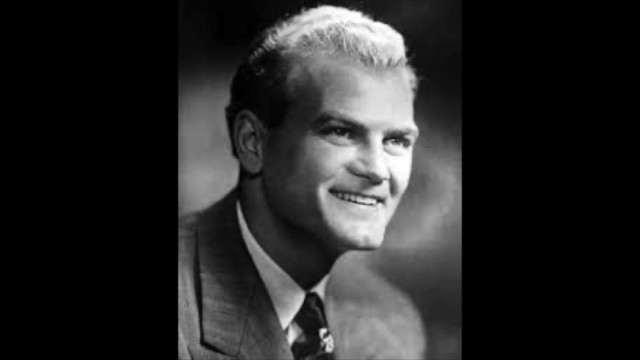

02:01
Dec 7, 2021
6
6
'THIS IS THE SUCCESSOR CHANNEL TO \"liederoperagreats\" WHICH WAS RECENTLY TERMINATED. Jon Vickers--tenor Richard Woitach--piano Date (?) =============== \"July 13, 2015 Jon Vickers, a Canadian tenor whose voice — titanic and yet delicate — was regarded as one of the finest sounds to fill an opera house in the past half-century, died July 10 in Ontario, Canada. He was 88. His death, from Alzheimer’s disease, was announced by London’s Royal Opera House at Covent Garden and reported by the Associated Press.t. But his voice was not merely big. In the relatively few but towering roles for which he was acclaimed — Tristan in Wagner’s “Tristan und Isolde” and Siegmund in the same composer’s “Die Walküre,” Florestan in Beethoven’s “Fidelio,” Aeneas in Berlioz’s “Les Troyens,” and the title characters of Verdi’s “Otello” and Britten’s “Peter Grimes” — he also projected surpassing emotional sensitivity. “An iron column that weeps tears” was the description accorded to him by Herbert Breslin, the publicist and manager who helped make tenor Luciano Pavarotti into an opera star. Time magazine, evaluating the major tenors of the day, declared in 1979 that Mr. Vickers could “match Pavarotti’s intensity and puts more serious thought behind his performing, but his is an entirely different kind of voice: rugged, heroic, best suited to dramatic works.” Mr. Vickers projected personal intensity that some critics perceived as arrogance. During a performance of “Tristan und Isolde” in Dallas, he was said to have halted the show to reprimand the audience for coughing. (The event was nicknamed the “Dristan Tristan.”) But he expressed resentment at musicians who drew attention to themselves, rather than to the music. A performance “really in a way requires that I die,” the Globe and Mail quoted him as saying, “so that someone else can be revealed.” Mr. Vickers’s major performances began in 1957 at Covent Garden, where he would become a mainstay. A highlight of that season was a production of “Les Troyens,” a French opera based on Virgil’s “Aenid.” In 1973, when “Les Troyens” made its long-awaited appearance at the Metropolitan Opera in New York, music critic Harold C. Schonberg described Mr. Vickers as “that Aeneas among tenors.” “I hope Vickers will be for me what Melchior was to Flagstad,” Birgit Nilsson, the reigning Isolde of Mr. Vickers’s era, said in 1960. He made her wait until 1971, when they performed the opera together in Buenos Aires. Mr. Vickers had a habit of pulling out of scheduled performances of “Tristan,” but the ones that he made, including two at the Met in 1974, made lasting impressions. More frequently, and to ecstatic reviews, he was Siegmund in “Die Walküre.” Another of his most important roles was Peter Grimes, the misfit fisherman that composer Benjamin Britten had created for his life partner, the tenor Peter Pears. Jonathan Stewart Vickers was born in Prince Albert, Saskatchewan, on Oct. 29, 1926. His father was a school principal and lay Protestant minister who, Mr. Vickers recalled, sometimes took him to sing for prisoners awaiting execution. “At the time, I wondered why they were crying,” he told the Globe and Mail. He worked for stores that included Safeway and the Woolworth chain, performing in local theater before receiving a scholarship to study at Toronto’s Royal Conservatory of Music. After performing at Covent Garden, he appeared at the Wagnerian Bayreuth festival in Germany. “Though I was the Wagnerian tenor of my generation, I never liked what Wagner stood for,” he told the Globe and Mail. During one festival, he boarded at the home of an elderly woman. “At breakfast one day, when I praised the festival, she admitted she sorely missed the good old days when the Füehrer was around,” he recalled. “She blamed Germany’s defeat on the Jews. It made my blood run cold. I never went back to Bayreuth.” Mr. Vickers described Christianity as “the rock” of his life and said that his purpose in singing was “trying to raise your eyes and your feelings and your emotions to look at the Divine.” “I am humble before the gift that was given to me,” Mr. Vickers told the Times in 2000. “I have a great sense of gratitude toward the giver of that gift. I can’t stand it when people think what they have was given to themselves.” Asked what he gave his listeners, he said, “Speaking figuratively, I would reach my arms through the proscenium arch to pull the audience in, to embrace them, to say to them: ‘Come up here with me. Know these feelings, and you will have the reward of experiencing the absolute beauty of “Fidelio,” the greatness of the tragedy of “Otello.” Come up here. Share it with me.’ ”\" Washpost'
Tags: iMovie
See also:

















comments